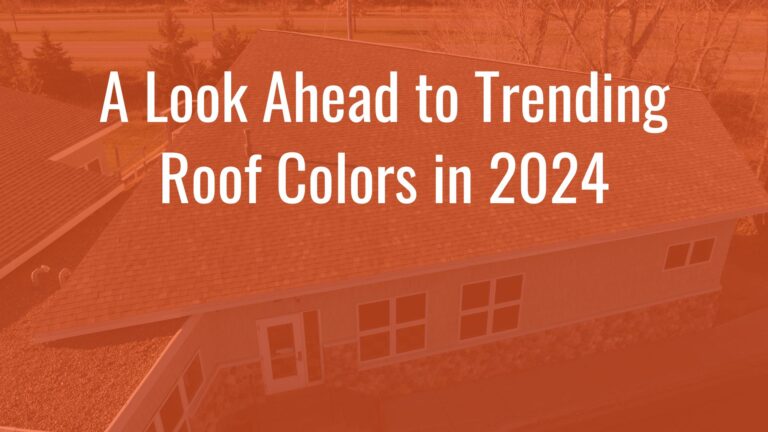What You Need to Know About Solar Roofs
The latest rave, solar panels, are another form of energy for your home. In an effort to reduce our carbon footprint, solar roofs have become an increasingly popular choice by homeowners. Additionally, they have been shown to be economical in the long term.
With high upfront costs and possible incompatibility, solar roofs are not always the easy option. But the benefits truly outweigh the disadvantages.
Here we will discuss the pros and cons, costs, and considerations when thinking about solar energy for your home.
On this page
(Click for a shortcut)
What Are Solar Panels?

Solar panels are devices that convert sunlight into electricity by the use of photovoltaic cells. These cells are composed of materials that generate electrons when exposed to light. These solar cells house layers of silicon, phosphorous, and boron. They can be used for remote and central power systems.
Pros

- Clean and renewable: In the fight to reduce emissions, solar roofing has well proven itself to create clean energy. Solar energy can be replenished naturally and sustainably. They produce zero air or water pollution.
- Little maintenance: Solar roofs are built to withstand harsh weather. Additionally, with no moving parts, solar panels do not require a ton of maintenance.
- Economical: Once a system has paid for its initial installation costs–which are high–energy is free for the rest of its life span.
- Sell excess energy: If your system creates more solar energy then needed for your house, you may be able to sell it back to the grid.
- Increased home value: Solar roofs increase the selling price when your home is on the market. There is a trend for these homes to sell faster too.
Cons
- Initial costs: A common barrier for homeowners when investing in solar panels is the upfront cost. There are many financing options available now and the price of solar roofs just keeps on dropping.
- Curb appeal: Some homeowners worry about the appearance of solar panel. If you’re not looking for the hi-tech futuristic look, there are options available that do a better job of blending in with a roof.
- Maintenance: Maintenance will always be a component with home structures, but the good news is that there is only a little for solar roofs. They will need to be cleaned periodically and if a panel is damaged, that will need replacing.
- Sun: Unfortunately, sun is not always as abundant as we hope. Solar panels can only produce energy if there is sunlight available. In winter and long periods of cloud cover, solar panels will not be as effective.
- Compatibility: Orientation and roof pitch are factors that could prevent compatibility. Solar panels are heavy which not all roofing structures can support.
The Cost of Solar Roofs

Like everything, the cost of solar panels varies. In this case, the size of the system, type of solar panels, and installations are all factors that must be considered. In the US, the average 6-Kilowatt system–which accounts for an average home–will cost roughly $16,000.
Prices for solar panels have substantially decreased in the past years. There are more government incentives than ever to help subsidize costs. Some of these incentives include the following:
1. Grants: Check the current options by the Department of Energy… Funding Opportunities | Department of Energy
2. State-level incentives: A majority of states offer incentives for the installation of solar panels like rebates and tax credits. This is individualized by state so be sure to check locally with your state government to see the available incentives in the area.
3. Federal Solar tax credit: In 2022, homeowners were able to claim up to 26% of their solar panel system as a tax credit. Check for relevant information here…Home Energy Tax Credits | Internal Revenue Service (irs.gov)
4. Net Metering: When a solar panel system produces excess electricity than what it needs, Net Metering policies require utilities to give credit for energy sent back to the grid.
5. Property tax exemptions: There is a possibility that your municipality or state will offer exemptions for homes using solar panels. Essentially, property taxes will not increase as a result of the added value from solar panels.
6. Solar Rewards program: In qualifying states, Xcel Energy offers incentives to customers to install solar panels… Xcel Solar rewards
Things to Consider
Before launching yourself into the amazing idea of solar panels, there are a few things you need to consider such as sun exposure, roof condition, type of solar panels and compatibility.
Sun exposure
For solar panels to be effective, proper sun exposure is required. If you live in an extremely shady area, chances are, solar panels aren’t worth it.
The orientation and angle of your roof can play a big role in this. Providing the most sunlight throughout the day is the south, so a roof facing that direction is ideal. If that’s not the case, panels can still be installed, but may have lower efficiency.
Roof condition
Your roof’s condition is not only generally important, but especially important when thinking about solar panels. Solar panels are absolutely not an option if your roof needs repair/replacement.
We advise that you hire a roofing professional to inspect your roof for any damage. These professionals will have a deep understanding of your roof’s capability to handle solar panels.
Type of solar panel
As soon as you know your roof can handle solar panels, the next step is to choose the right type of solar panel. There is a wide variety of solar panels on the market, and some are more compatible with your roof than others. For example, some panels are made for flat roofs, pitched roofs, or extreme weather. There are many questions to ask, and that is why you should hire a professional solar installer.
Solar installer
Lastly, be sure to hire a reputable solar company. There is a very specialized knowledge accompanied with installation of solar roofs and there should be no DIY projects. By hiring a professional, you can ensure that installation goes smoothly, and that you have all of your guarantees.
Be sure to check with friends and family for any recommendations. Additionally, read reviews, check for licenses and warranties, and compare quotes.
Conclusion

To cap off, solar panels offer a wide range of benefits for homeowners and business owners searching for ways to reduce their carbon footprint and lower energy costs.
If you are considering solar panels, be sure to do extensive research on all of the cost subsidies offered by the government and energy companies. That initial price tag does not have to be the end of the story.
Finally, be sure to hire a reputable solar installer. When done right, solar energy will be a reliable source of energy for years to come.
Want to learn about other environment forward roofing options?
Call T-10 Construction today for a FREE inspection and estimate!






